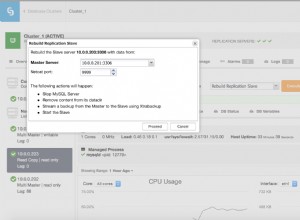Eine weitere Option besteht darin, alle Ihre Linq2Sql-Aufrufe in einem TransactionScope() zu verpacken. Dies sollte sie alle dazu zwingen, in derselben Verbindung zu laufen.
using System.Transactions; // Be sure to add a reference to System.Transactions.dll to your project.
// ... in a method somewhere ...
using (System.Transaction.TransactionScope trans = new TransactionScope())
{
using(YourDataContext context = new YourDataContext())
{
context.ExecuteCommand("SET IDENTITY_INSERT MyTable ON");
context.ExecuteCommand("yourInsertCommand");
context.ExecuteCommand("SET IDENTITY_INSERT MyTable OFF");
}
trans.Complete();
}
// ...
Wenn Sie jedoch versuchen, Folgendes zu tun:
context.ExecuteCommand("SET IDENTITY_INSERT MyTable ON");
context.MyTable.InsertOnSubmit(myTableObject)
context.SubmitChanges()
context.ExecuteCommand("SET IDENTITY_INSERT MyTable OFF");
Sie werden wahrscheinlich auf andere Probleme stoßen, insbesondere wenn in der Identitätsspalte das IsDbGenerated-Attribut auf „true“ gesetzt ist. Der von Linq2Sql generierte SQL-Befehl weiß nicht, ob er die Identitätsspalte und den Wert enthalten soll.




